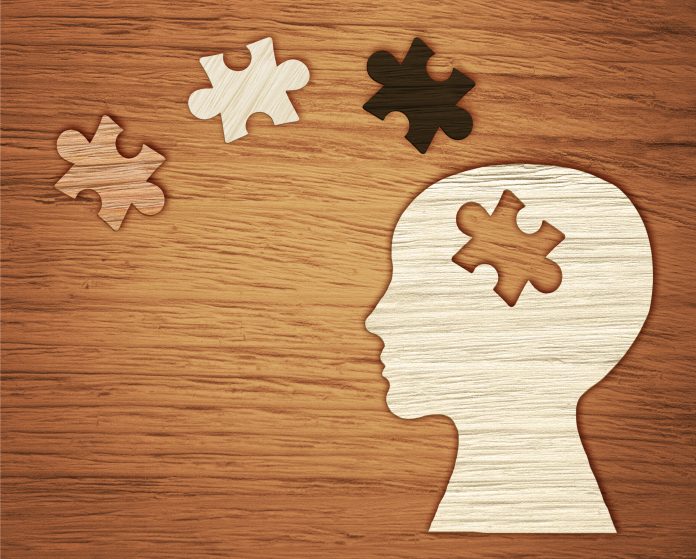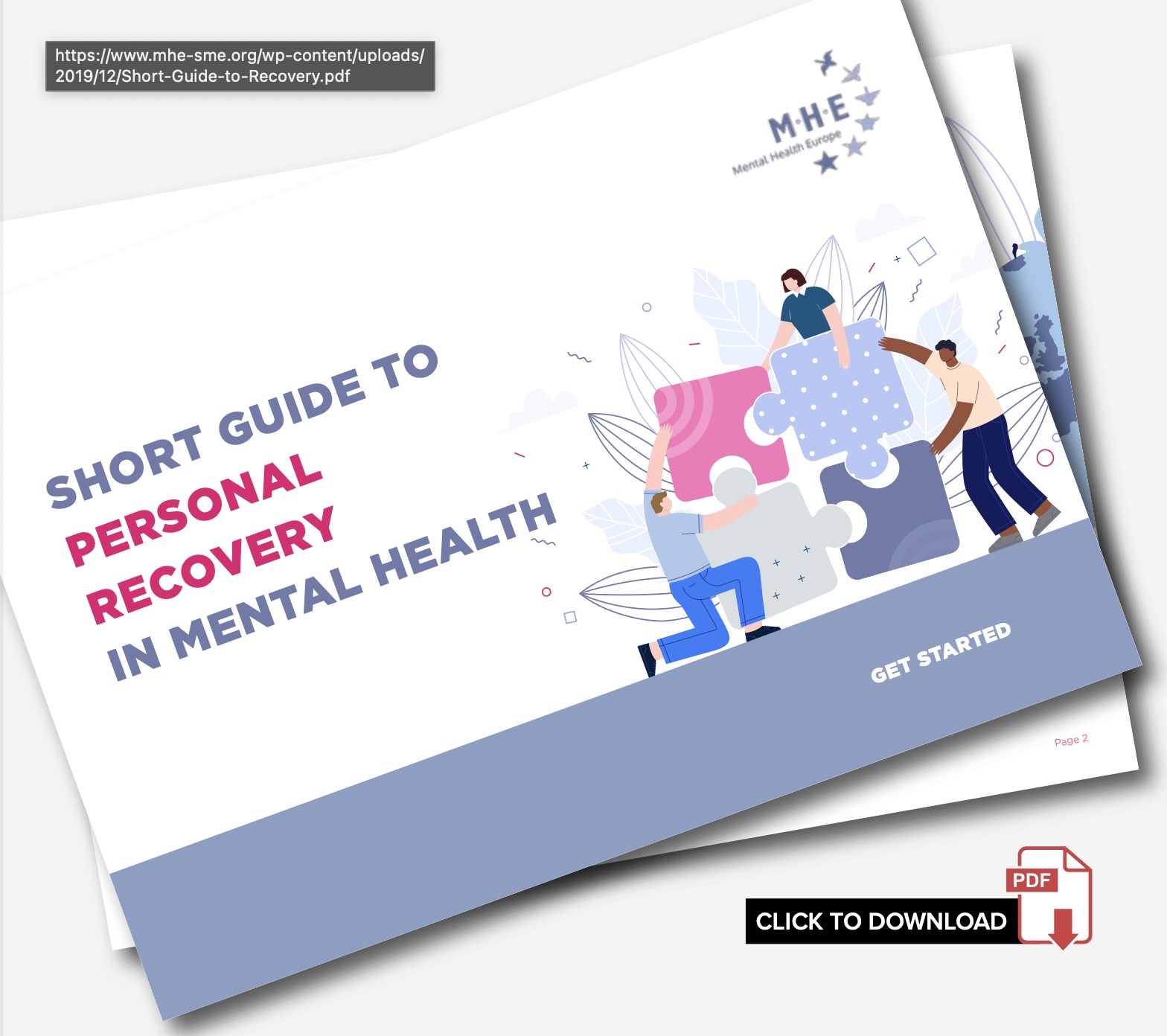Jackie Mellese, Communication Manager at Mental Health Europe, with Mental Health Ireland (MHI), explain how the ‘Short Guide to Personal Recovery in Mental Health’ is perceived
The vision of Mental Health Europe (MHE) is of a Europe where everyone’s mental health and well-being flourish across their life course. The ‘Short Guide to Personal Recovery in Mental Health’ (2018) was developed in collaboration with our member Mental Health Ireland (MHI) to help people. A number of people were asked to share their thoughts and comment on whether this Short Guide has helped them manage their mental health challenges.
Before delving into the feedback received from MHI respondents, let’s introduce the concept of Co-Creation (Co-Production) in mental health. MHE’s Strategic Plan (launched in October 2021) includes Co-Creation as one of the six strategic priorities. Co-Creation ensures that the insight and expertise brought by people with lived experience of mental health problems are taken on board. We are double-checking with our experts by experience and seeking their feedback on this Guide (what was useful, how, and why?); what has helped in managing mental health challenges besides the Guide; and what other supports could be beneficial.
Growing the understanding around personal recovery in mental health
The experts, by experience, found this Guide to be useful, easy to access and packed with practical information. Person A said: “As an individual I specifically like the section on what I can do for myself, but I also appreciate the section on what I can do as a supporter i.e., as a family member or as a service provider. I find this Guide useful to share with others in order to grow the understanding of recovery.”
Another respondent (Person B) took part in the Co-Creation group that developed this Guide and used her lived experience on this project. Person B shared: “It felt so liberating to have a use for my difficult experiences. It gave my journey new meaning. I also felt a sense of community being part of the Co-Production group. It was a relief to be able to speak freely about experiences I had spent decades hiding. It had a profound effect on how I see myself and how I speak about myself.”
Having met both Person A and Person B professionally at a workshop they co-chaired, it was clear that they have not only survived but rather thrived despite the mental health problems they encountered. Furthermore, both these respondents used their lived experiences to enhance mental healthcare service delivery skillfully.
Additional support included connection, identity, peer-to-peer support & even medication, when necessary
Next, our respondents shared what other tools have helped them face their mental health challenges. Again, we received a whole panoply of answers, amongst which is MHI’s array of personal development, mental health promotion and recovery tools: Five Ways to Wellbeing (Connect, Be Active, Take Notice, Keep Learning, Give); CHIME (Connect, Hope, Identity, Meaning, Empowerment); WRAP (Wellness Recovery Action Plan, counselling, and Peer Support).
Person B said: “I find that when I actively use these tools, I feel better in myself. When things are challenging or when difficult events happen in life, I manage experiences of distress by prioritizing the important things in my life and minimizing my responsibilities until I feel stronger and more able to gradually extend my reach again.”
Another respondent (Person C) mentioned that “identity and connection helped more than anything to manage mental health challenges”. This respondent also engaged in years of counselling, which has been beneficial in helping build resilience and coping skills and help make sense of experiences. Medication has also been part of her journey, although this was resisted for a long time.
The medication helps, and she has come to terms with taking it on an ongoing basis (minimum therapeutically effective dose and constantly checking with the clinicians to make sure the dose isn’t needlessly escalated).
Person C shared how incredibly difficult it was to “do recovery” or to improve her mental health when the stress, anxiety and depression were coming from external factors [the social determinants of health: home, safety, income, education, employment]. She shared how one of her most significant supports was a peer who helped her find part-time jobs to supplement her income. Although she didn’t realise it at the time, that connection was crucial.
Person C: “I cannot over-emphasise the impact this [peer support and connection] had on my recovery. As we know, recovery happens in relationships and so this helped me build confidence and a belief. I could replicate this relationship’s success with others. For me, this was huge, as my confidence was the first to go and the last thing to come back.”
Family recovery support, whole family approaches & talking therapies
Two respondents said the Guide does not include adequate family recovery support. For example, our two respondents mentioned that during their recovery process, there was nothing to help their family with what was happening. Family recovery support is valuable for the family and the person undergoing mental health distress.
Person B: “I was unaware of what was available to me or to our family. Sadly, many supports are not offered automatically. When I was old enough, I asked for family therapy and this was very helpful for us to be able to have difficult conversations in a safe space about what happened in our family, to reach a resolution to move forward and to understand the difficult feelings that had developed. Everyone in the family is affected differently. Without the right supports, they may be unsure what to do to move forward and to work well together as a family again.”
The insights shared by the three respondents suggest that this Guide is a sound basis and offers a strong foundation for taking the first step towards one’s mental health journey. However, as recovery evolves, different needs may emerge with that evolution. There is growing literature on specific topics within the mental health realm (inner family systems, trauma, adult-child work, etc.). In addition, people may require different tools at various life stages. Yet, this Short Guide developed by MHE and MHI can be a valuable resource for taking the first step in one’s recovery. Do read it and share it with your network.












